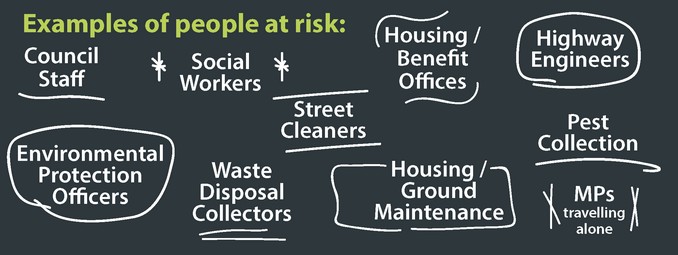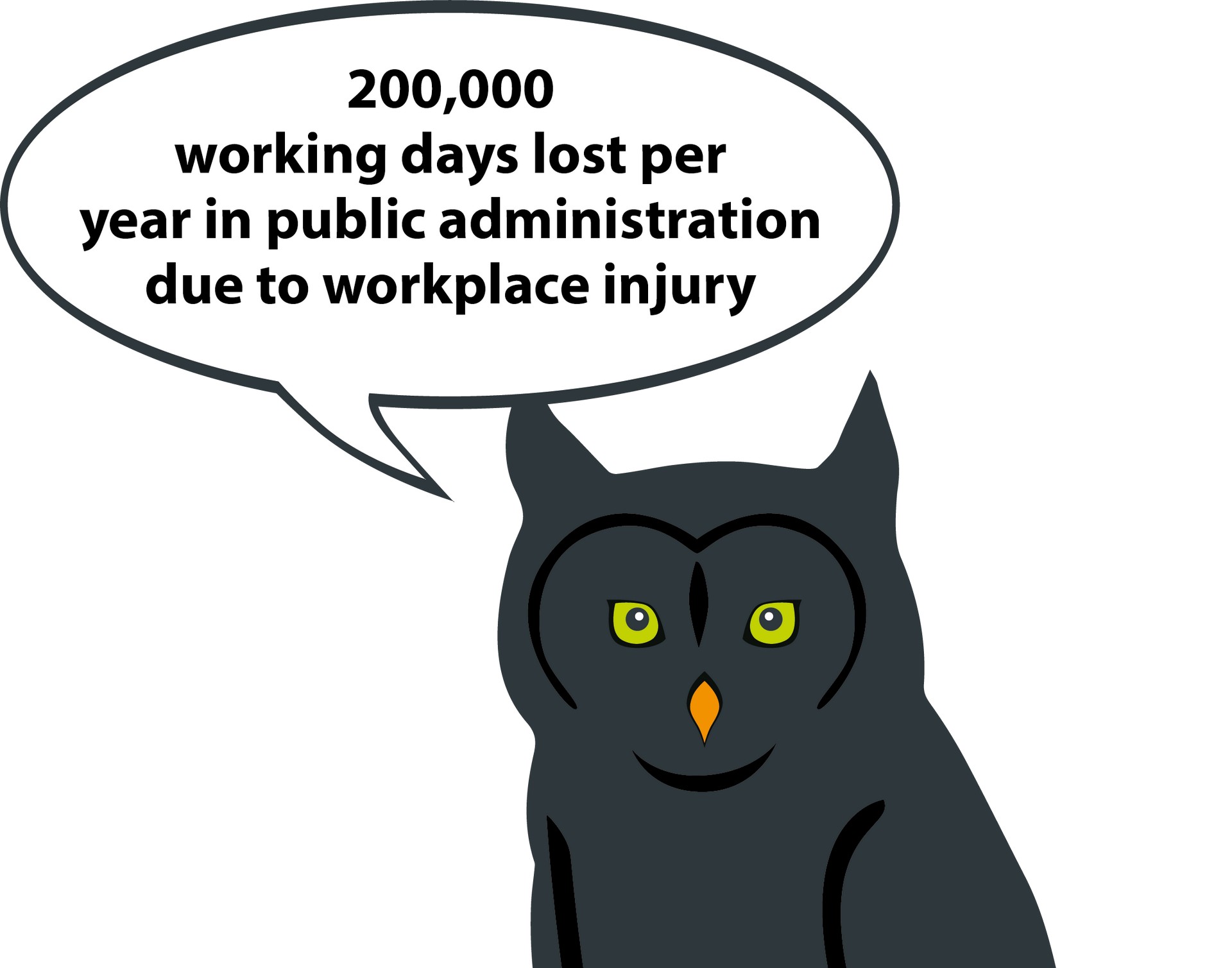Lone worker protection for government workers
Governments and councils of all sizes are under financial pressure with continued austerity cuts, which are expected to continue for the next 5 years. Combining this with the demand of public expectations, it puts huge pressure on local authorities to continue to do more, but with less.
In order to meet spending targets, local authorities may find themselves cutting costs, by reducing staffing levels, staff working wider areas with the same resources and increased working hours, which may result in an increasing number of lone / remote / mobile workers.
Even without austerity, staff in government have typically worked alone – be that MPs in their surgery, to Environmental Health and Planning Officers to social workers, all largely solitary roles.
Being responsible for lone or remote working staff that are not directly supervised brings its own set of risks to the employer. An in-depth risk assessment is a necessity to ensure workers are provided with the adequate protection needed. Knowing that your staff are safe is of paramount importance.
Currently, 35 million people - just over half of the UK’s population own a smartphone. Using apps is one of the most cost effective ways to protect lone working staff.
Typically, a huge range of job roles are needed to keep our towns, cities, counties and indeed our country running – one solution does not fit all.
LONEALERT is designed to allow government professionals easy and quick access to Lone worker protection, managers access to easily monitor the status and location of their staff in a streamlined and efficient way. The O.W.L will also allow you to be able to set up a personalized or council wide escalation procedures that will come into effect as soon as an alert is raised.


Our risk assessment
To carry out a risk assessment you need to think about what might cause harm to your employees and decide whether you are taking the reasonable steps needed to prevent any harm.
A risk assessment is something you are required to carry out by law. We have teamed up with lone working specialist trainer Jackie Dolan and created a comprehensive risk assessment for people within the government.

LONEALERT Solutions for working in government:
As with all sectors the level of risk depends on the employee’s job role - which can differ drastically throughout the day. Looking after multiple staff with high & low level lone working risks can be a difficult task. We have a variety of solutions that will help you, all of which are controlled by The O.W.L, so you can mix and match solutions to suit your needs. The O.W.L allows you to set up personalised or council wide escalation procedures that will come into effect as soon as an alarm is raised.

LONEALERT Access:
What is it?
Accessed via The O.W.L, landline, mobile phone or smartphone, LONEALERT Access is a simple, cost effective solution to benefit lower risk roles within this sector.
How it can work?
An MP, Councillor or Clerical Member of staff may only work alone rarely, to travel to an external meeting. Using LONEALERT Access, they simply log-in with an expected travel duration and meeting location before they leave, and when they arrive, they simply send another update to extend timer for meeting length (plus over-run!). Another message is sent to cover journey and route back to office/home, and when they arrive they simply cancel the alarm. 10 seconds each time, at most, ensures that should something untoward happen, help will be notified.
LONEALERT Instant:
What is it?
The Instant solution includes all products within the LONEALERT Access range, and adds access via a range of dedicated devices. GPS equipped with fall detection, panic and one button timer creation.
How it can work?
Jaz, a social worker has a busy day. Before she leaves she picks up her ID badge lanyard, attached to which is her LONEALERT Instant device. It monitors and records her locations through an unpredictable day, but she knows that if a client becomes seriously problematic, she can press the SOS button and a live line will be opened to the Control Room who can listen in. Visiting known problem clients, she also has the peace of mind that The O.W.Ls mapping technology has recognised that this visit is a little more unpredictable than most, and is automatically advising the operator of this increased risk. Thankfully, today, nothing happens.


LONEALERT Plus:
What is it?
Plus includes LONEALERT Access, and all the safety features of Instant, but adds high durability, IP67 rated devices, with LCD screen for improved user feedback and advanced notifications, with Bolt-Ons for indoor locating workers. Also includes an ATEX intrinisically safe option if required.
How it can work?
With gardeners, parks keepers and groundsmen working outdoors, in all weathers all across the region, they need a Lone Worker alarm device that can stand up to a tough environment. Their job also means they are working at all angles and up and down off machines. Before they start, they pick up their LONEALERT Plus off the charging station, clip it and start work, safe in the knowledge that the IP67 ruggedized device will stand up to the the elements and environment. Due to the custom delay on the Man Down alarm they unit requires an extended period of activity before it activates the vibrating pre-alarm, giving them ample time to cancel if needed. If they don’t, a call is connected to control, and help will be sent.
LONEALERT Anywhere:
What is it?
Including all products within the LONEALERT Access range, the Anywhere solutions is great for those who work in outdoor areas with very limited mobile signal.
How it can work?
Working in a large rural area, where signal is non-existent brings a whole heap of problems for lone workers. With no mobile signal a large portion of the time, their mobile phone, and most lone worker devices on the market just can’t help them. LONEALERT Anywhere keeps them in contact, as they arrive at a lone working location, a single button press flies up to the satellites and to the O.W.L who logs the start of the activity along with GPS. Once back in a place of safety, the button can be pressed again to cover the journey onwards.



